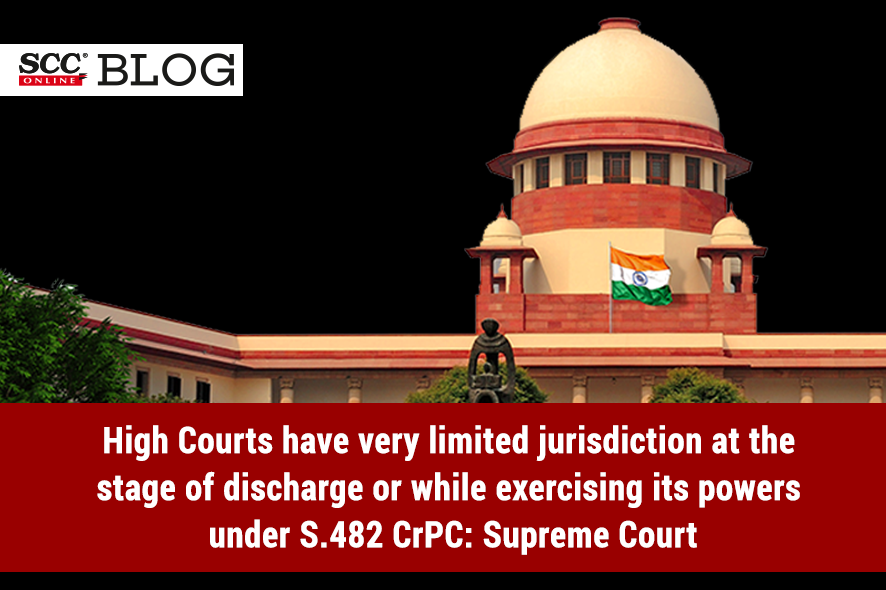Supreme Court: In a criminal appeal filed by the Central Bureau of Investigation (‘CBI’) against the judgment and order passed by the Punjab and Haryana High Court, wherein the Court has quashed the criminal proceedings for offences under Sections 452, 323, 365, 342, 186, 225, 506 and 120-B of the Penal Code, 1860 (‘IPC’), the division bench of MR Shah* and CT Ravikumar, JJ. has held that the High Court has exceeded in its jurisdiction in quashing the entire criminal proceedings, and while applying the law laid down by in catena of decisions on exercise of the powers at the stage of discharge and/or quashing the criminal proceedings, set aside the impugned judgment and order quashing the criminal proceedings against the accused.
The Court opined that the High Court has exceeded in its jurisdiction in quashing the entire criminal proceedings in exercise of the limited powers under Section 482 of the Code of Criminal Procedure Code, 1973 and/or in exercise of the powers under Article 226 of the Constitution of India.
After perusing the impugned common judgment and order passed by the High Court, the Court said that the High Court has dealt with the proceedings before it, as if, the High Court was conducting a mini trial and/or the High Court was considering the applications against the judgment and order passed by the Trial Court on conclusion of trial.
The Bench said that as per the cardinal principle of law, at the stage of discharge and/or quashing of the criminal proceedings, while exercising the powers under Section 482 CrPC, the Court is not required to conduct the mini trial. The High Court in the impugned judgment and order has observed that the charges against the accused are not proved. This is not the stage where the prosecution / investigating agency is required to prove the charges. The charges are required to be proved during the trial on the basis of the evidence led by the prosecution / investigating agency.
Therefore, the Court held that the High Court has materially erred in going in detail in the allegations and the material collected during the course of the investigation against the accused, at this stage. As, at the stage of discharge and/or while exercising the powers under Section 482 CrPC, the Court has a very limited jurisdiction and is required to consider “whether any sufficient material is available to proceed further against the accused for which the accused is required to be tried or not”.
The Court noted that the investigation was handed over to the CBI pursuant to the directions issued by the High Court. Thereafter, on conclusion of the investigation, the accused persons have been charge sheeted. Therefore, the Bench said that the High Court has erred in observing at this stage that the initiation of the criminal proceedings is malicious, as whether the criminal proceedings were malicious or not, is not required to be considered at this stage. The same is required to be considered at the conclusion of the trial. Further, it said that at this stage what is required to be considered is a prima facie case and the material collected during the investigation, which warranted the accused to be tried.
[Central Bureau of Investigation v Aryan Singh, 2023 SCC OnLine SC 379, decided on 10-04-2023]
*Judgment authored by: Justice MR Shah







